- Home
- Jade C. Jamison
On the Run (Vagabonds #1) Page 2
On the Run (Vagabonds #1) Read online
Page 2
It was lonely sometimes…but I had my guitar.
Yeah, my guitar. From the moment my mother had begun instructing me, I took to that damn thing like a baby takes to her mother’s breast. I latched on and fed from it. That guitar was an extension of what was on the inside. No, there was no great inner turmoil, no huge existential crisis, but there was still a lot in there, things I could only express through music, and the better I got at playing, the more my guitar spoke for me.
The older I got, the more it worked that way.
But it was more than that. Music was a big part of me, inside and out, and I couldn’t imagine a day without it. With the guitar, I was learning to take it a step further—I didn’t just listen and sing what someone else had created. I had the ability now to create on my own.
Yeah, I had that knowledge and that power, but somehow, at the tender age of thirteen (even though I’d been playing for a little over a year at that point), I didn’t feel ready. Instead, I kept learning riffs and solos, teaching myself how to play some of the more complex compositions my favorite guitarists had written. I didn’t even think about it—I just did it. It was something fun, a new challenge every time I picked it up. Every day after school, I’d do my homework as demanded by my parents, and then the rest of the night I’d spend in my room, playing a song from one of my CDs (over and over and over again) while duplicating what I heard. Sure, mom had taught me chords and scales, but I was learning everything I’d need to know about the guitar that would shape my future. There was nothing I didn’t want to try.
So, by the time I was a sophomore in high school and the theater department decided to host a talent show as a fundraiser, I entered, wanting to show off my axe-slinging skills to my classmates. Like I said earlier, they knew me as the happy-go-lucky girl in classes who asked an occasional question and participated in the literature discussions in English class, but they had no fucking clue who I really was. This talent show? They’d see my heart and guts spilling on the stage. That was me. That damned guitar represented who I was at the core.
My biggest problem was trying to decide what I wanted to share. Yeah, it would just be me on guitar, so how exciting would that be, especially considering my taste in music? A lot of my classmates weren’t into heavy metal like I was, so I didn’t know how many of those kids knew who some of my favorite bands were, let alone liked them…but it didn’t matter. If I was going to play my guitar in front of an auditorium full of classmates, I was going to play something I was good at…and something I loved. I finally decided to figure out a way to place four of my favorite artists into a medley—some of the late greats, as I thought of them. I decided to do some kind of combination of Hendrix, Rhoads, Robbin Crosby, Dimebag, and Cobain, and I knew it would be kind of weird…but I also knew I could make it work. Choosing the songs would be the tough part, but I decided to go with favorites, ones I already knew how to play and that I thought I could blend together somehow. I chose my favorite Hendrix song of all time, “Purple Haze,” and then decided to look through the songs I knew of the artists and try to figure out songs that would work as one. It took me a while to decide on the Ozzy song, but I finally settled on “I Don’t Know” because I loved the driving sound of the guitar. Then I followed it up with part of “Wanted Man,” one of my favorite Ratt songs. I decided to finish it up with riffs from the second part of Pantera’s “Hollow,” followed by a long minute of Nirvana’s “Aneurysm,” because it had so much diversity to it. It took me days to make the five songs work together, but when I was done, I was thrilled and thought my long-gone idols might even be impressed with what I’d done with their music. If any of my classmates recognized any of the songs, I would consider what I’d done a success, but I was going in assuming most of my audience wouldn’t be familiar with the tunes, because most of my classmates listened to softer rock, pop, hip hop, or country. Metal (in any form) didn’t belong to too many kids—it did to some of the group of troubled souls, the ones who walked across the street in the morning to smoke in the park, since smoking wasn’t allowed on school grounds. They were the kids who came from homes filled with violence, troubled parents, abusive family members, loved ones with mental problems. It wasn’t that I didn’t like those kids, but I wasn’t going to be late to class just to hang with kids who’d make me smell like stale cigarette smoke. I respected their choice in music, however.
Those were the kids who knew my music…but they were also likely to be the kids who’d never dream of attending a high school talent show in a million years.
My parents weren’t fans of my music choices, either. They preferred rock and even pop and dance, stuff that was lower key—we’re talking shit like Maroon 5, Lady Gaga, Bruno Mars, Paramore, and The Black Eyed Peas, music that had long lost any kind of appeal for me. But even though they didn’t like my music choices, they were impressed with my playing ability and the way I was learning to whip through a guitar solo. I had long surpassed the lessons my mother had given me a year and a half earlier and had moved on to other things.
Trying out for the talent show was easy. All I had to do was go to the auditorium after school one day and wait for my turn. There were a few other kids there, ones also trying out. I watched a couple of dance routines, a juggler, two bands (both fairly decent), a stand-up act, a funny skit, and lots of young girls singing—both solos and duets. I recognized most of the singers from concert choir, and I knew they already had the performing in front of an audience part down pretty well. That would be the hardest part for me. Playing was no big deal, but I’d never played for a soul, not even my mother. Yes, I’d showed her scales and some of the musical pieces she’d “assigned” as homework, but now that I was learning on my own, it had been me in my bedroom. I didn’t even look in a mirror when I played. Yeah…mom and dad had heard me through the walls, but I hadn’t had to feel like I was under their scrutiny.
An audience would be different. These people would be watching me and only me for the few minutes I was onstage—and they wouldn’t necessarily like what I was doing. Add to it if they weren’t friends, they might not even give me a courtesy clap. I could feel the pressure already.
It didn’t matter, though. I had already made up my mind to do it. The only thing that would stand in my way would be if the drama teacher didn’t choose me to be in the show—and even that would be okay, because trying out was a step forward anyway. No one had ever seen me play…so by the time the theater teacher told me it was my turn, I was down to him and a couple of drama kids hanging around who would listen, because I was one of the last to try out.
I had brought my guitar and a small amp—no special effects pedals or anything like that. For the bands whose music I was playing, I didn’t need anything except the guitar. The drama teacher mumbled something about there being other amps I’d be able to plug into during the actual show. But he hadn’t chosen me yet to be a part of the show, so I supposed that would be “if.”
Because I was feeling nervous, I was sure that I’d mess up my audition, even if just a little. I was certain I’d play a wrong note. It was easy enough to do. But I hadn’t counted on having played enough that my performance would be flawless. Yes, I was feeling some anxiety at being watched and listened to, but I hadn’t considered that I’d let myself get lost in the music, just like I always did. It was so easy to let it consume me, let it speak to me in ways only it could. I stood up there, guitar strapped over my shoulders, and let the emotion of the notes wash over me, some of the purest, most beautiful notes I’d ever heard before.
I looked up once or twice, trying to connect with my audience, but the lights were bright. I couldn’t tell if the few people there, drama teacher included, were impressed or horrified…so I just played my ass off. When I was done, several minutes later, I walked to the edge of the stage where the glare of the lights was out of my eyes. I wanted reactions.
I couldn’t read the drama teacher’s face. Did he like it or hate it? I had no idea. I couldn’t tell if
the kids left in the room liked it either, but I could see something there—something positive…so I was satisfied. I barely registered when the teacher told me he’d post results outside his classroom door by the next morning…so, for the evening, I just had to bide my time.
I sat at the dinner table that evening but I had no interest in eating. I took a bite here and there but mostly just pushed the food around my plate with my fork. I could sense that mom and dad were hesitating, afraid to ask me about my audition…but I wasn’t sure how to voice my apprehension, my nerves. This was the first time I’d ever put myself out there, ever laid my soul bare to potential rejection…and not knowing was tearing me up.
Mom finally asked, “Kyle, how do you think you did? We can tell you’re nervous.”
I looked back down at the edge of my plate. I didn’t need my parents’ acceptance or approval because I knew I already had it and I also knew they were proud of me, no matter what. They would have been content to listen to me play behind the closed door of my bedroom or from the garage when I plugged in my amp. They merely wanted me to be happy. That was all they had wanted and, I had discovered since settling in Colorado, my happiness was the main reason we’d put down roots to begin with. That overheard conversation between my parents, the one in which they reminded each other that they had to “stick with this damned town,” to live in a place they’d quickly grown to dislike, was in the back of my mind before I spoke. If my parents were going to reside in a place they weren’t fond of, then I had to do my best to make it worth their while. Getting to be a part of the talent show? Not necessarily a big deal nor something my parents gave a shit about either way. My mood regarding rejection or acceptance? Huge. So I swallowed my doubts and nerves. Whether or not the theater teacher liked me, I knew I’d kicked ass on that performance, and even if the school rejected me, I knew I’d done well—and that was what my parents needed to hear.
“I did great. Nailed the whole damn thing. It was flawless.”
Both mom and dad smiled and then mom said, “I’m not surprised. Your playing is usually flawless once you’ve got a song down.”
It was at that moment that I realized mom listened to me playing a lot more than I’d suspected. I knew my musical abilities had already surpassed those of my parents, but there was a reason for it. My parents liked music, perhaps even loved it. Me? It was my whole world. It was the beginning and the end for me. Once I’d discovered that damned guitar, nothing else—and I mean nothing else—mattered.
“Thanks, mom.” I forced myself to stab some lettuce with my fork.
Dad asked, “Think you’ll make it into the talent show?”
I shrugged. “No idea. The drama teacher has a hell of a poker face.” I paused, realizing I’d let out a mild (yes, very mild but there it was, nonetheless) expletive, one I’d said in front of my friends dozens of times a day, sang in dozens of songs but never voiced at the dinner table…and nothing happened. As always, my parents were progressive and lenient, and my use of that word didn’t even phase them. Little did I realize at the time, that lack of eyebrow raising from my parents merely fueled a rebelliousness in me that I didn’t even know was there. “I could tell a few of the kids were impressed.” I put down the fork of lettuce, still uneaten, and picked up my glass. “Anyway, he said he’ll post results tomorrow.”
“If he doesn’t take you, it’s because he has no taste.”
My dad smiled. “Well…not everyone likes Kyle’s taste in music.”
“That may be, but you know as well as I do that she’s got more talent in her pinkie finger than most people acquire from a lifetime of music lessons.”
I managed to eat a little dinner then—and, after helping my parents load the dishwasher, put on a concert for no one in the garage. Unfortunately, playing for hours didn’t help me sleep and I had a hell of a time finding rest because I was starting to have a good feeling about tomorrow.
Chapter Three
I HAD TO wait until second period the next morning to find out the results of the talent show auditions. I went past the auditorium for the fourth or fifth time that morning, now during passing period before my second class, to see if the teacher had posted results as promised.
And there it was. Hell, yes. I was listed among a bunch of other acts, and I wondered if my name being near the top meant a damn thing. Probably not, and, as I continued looking at the length of the list, I began wondering if the teacher had accepted everyone who’d tried out for the talent show. No matter. Next week I’d be performing for anyone in my school who dared to attend, and I’d show everyone the awesome shit I could do with my axe. I’d never played for any of my friends, hadn’t even played for my parents on purpose, and I was finally ready to show off. I knew I was good. I knew I was doing what a lot of people couldn’t. I knew I could communicate through a tune, share an emotion through a riff, move the room with a few notes, and I wanted to do that with the world.
I was ready.
A couple of girls I hung out with from my United States History class (who were, for all intents and purposes, my closest friends) asked me at lunch what I’d be doing for the talent show when they heard I’d “made the cut,” and I told them I would be playing a medley of some of my favorite, but dead, rock stars, and I told them which ones.
One of the girls turned her nose up at me. “You mean the guy from that metal band, Pantera?”
“Didn’t they sing that—song called ‘Walk’?” I could tell my other friend had avoided putting a nasty adjective before the word song, finally realizing it might be a bit of a faux pas to trash or make fun of music I clearly loved. And she was right. Say one nasty thing about the Abbotts. Just one. I will make you regret your words. I felt that adrenaline-charged sentiment rushing through my nerves, and I knew right then and there that I’d have no problems taking a fist to her pretty little face. Did it really matter that she was dissing a band who’d never heard of her? Of course not…but at that young age, having been a little spoiled by over-attentive, doting parents who’d made me feel I could do no wrong, I would have gladly laid her flat in the school parking lot—and all for making fun of one of my favorite bands, a guitarist I worshipped and often did my best to emulate on a daily basis. Nothing that would have merited a fist fight.
But she’d curbed her tongue and merely asked a question, so I replied, “Yeah, they do. That kickass song along with many others. What about it?”
My friend saved herself by volunteering to take me shopping for an outfit. Oh, hell. I hadn’t even thought of what I’d wear onstage. Until this point, I’d never much cared about impressing others with clothing, but now might be a chance to look the part.
So we went to a few thrift stores and consignment shops, spending our entire afternoon looking at clothes. I almost bought a pair of black leather pants, but when I tried them on, they didn’t fit quite right. They were tight while also feeling like they wouldn’t stay on properly, and I could tell I would perspire a lot in them. And they were real leather, so I had no idea how to clean them. After feeling frustrated about all the clothes I tried and didn’t like (and the ones my friend suggested that definitely didn’t work), I decided to just wear my own clothes—but, at least, the shopping trip made me think about an onstage costume. I decided to just wear a pair of ripped-up jeans I wouldn’t normally wear to school and a t-shirt. I chose an Ozzy t-shirt, considering it was part of one of his songs I would be playing.
I didn’t realize at the time that my stage presence would be important. For now, I simply wanted to play and be heard, and I wasn’t dressing to impress.
The night of the talent show arrived. The admission was cheap, just a couple bucks, because the theater teacher wanted the place packed. And it worked. There wasn’t an empty seat in the house. I and twenty-some other acts stood backstage or hung out in the greenroom and heard the murmur of the crowd become a loud roar as the auditorium filled up. I walked backstage once more and peeked between the velvet curtains that separated th
e front of the stage from the back and saw an ocean of people in front of me.
That was when I grew nervous. Really nervous. This was real. By the time the show started, my stomach was in knots. I didn’t want to pace in the greenroom, because I might make other acts nervous. More than that, though, was that I knew pacing and looking worried would detract from the persona I was trying to wear. I wanted to look cool, and the only way to look cool was to be cool—or at least to fake it well.
So that was what I did. The third act was a band, so that helped. It was five guys and they played an Avenged Sevenfold song. Forcing myself to get lost in their music helped me relax in a way nothing else would have. I let myself get into the zone, much like a mental place I imagined athletes or soldiers went to when they knew they had to win, no matter what the cost. It sounds melodramatic now, but back then it gave me the courage to perform in front of people for the very first time. I also kept reminding myself that my practices all week long had been continually flawless. I had this.
So, when it was my turn, I walked onstage while a tech student plugged the school’s cable into my guitar, not knowing what to expect until I struck the first chord. After I heard my name announced and the audience poured upon me the requisite applause, I closed my eyes and took one more deep breath.

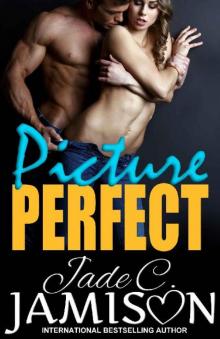 Picture Perfect
Picture Perfect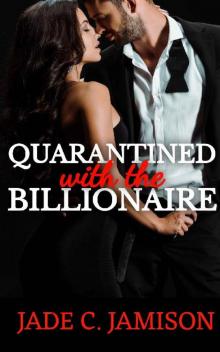 Quarantined with the Billionaire
Quarantined with the Billionaire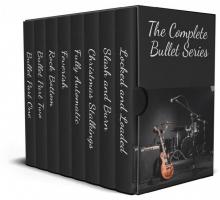 Bullet Series Box Set Books 1-8
Bullet Series Box Set Books 1-8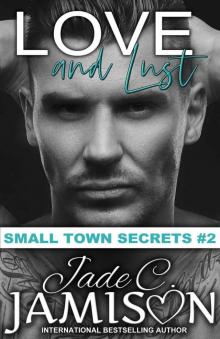 Love and Lust (Small Town Secrets Book 2)
Love and Lust (Small Town Secrets Book 2)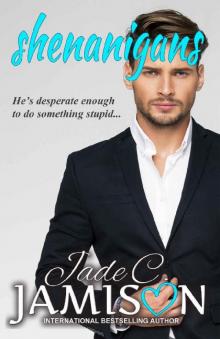 Shenanigans (Pretense and Promises Book 2)
Shenanigans (Pretense and Promises Book 2)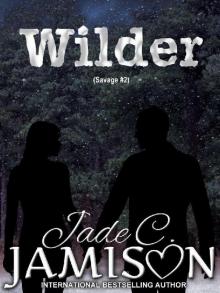 Wilder (Savage #2)
Wilder (Savage #2)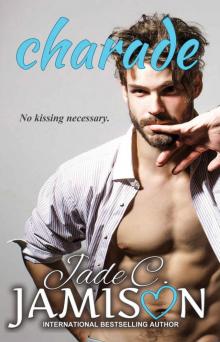 Charade (A Fake Fiancée Romance) (Pretense and Promises Book 1)
Charade (A Fake Fiancée Romance) (Pretense and Promises Book 1)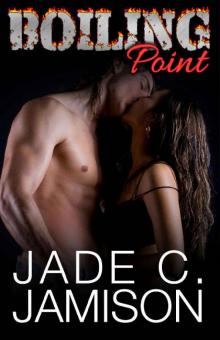 Boiling Point (Feverish #1.5)
Boiling Point (Feverish #1.5)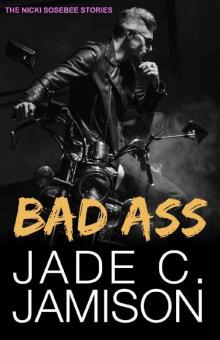 Bad Ass (Nicki Sosebee #14)
Bad Ass (Nicki Sosebee #14)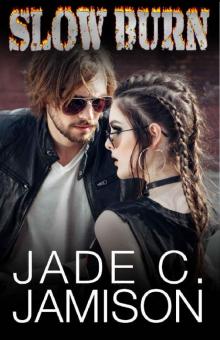 Slow Burn (Feverish #4)
Slow Burn (Feverish #4)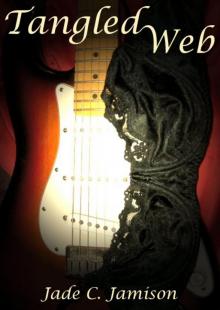 Tangled Web
Tangled Web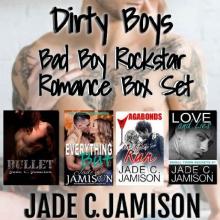 Dirty Boys: Bad Boy Rock Star Romance Box Set
Dirty Boys: Bad Boy Rock Star Romance Box Set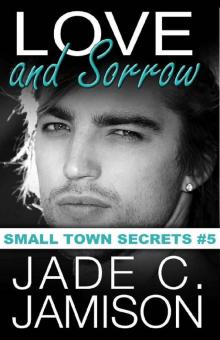 Love and Sorrow (Small Town Secrets Book 5)
Love and Sorrow (Small Town Secrets Book 5)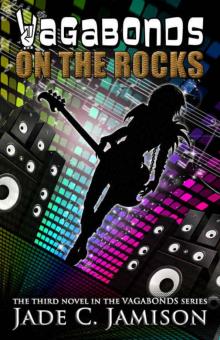 On the Rocks
On the Rocks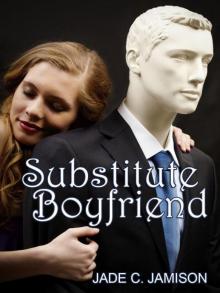 Substitute Boyfriend
Substitute Boyfriend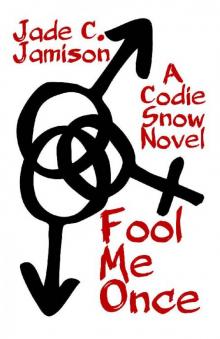 Fool Me Once (Codie Snow #1): A Romantic Suspense Series
Fool Me Once (Codie Snow #1): A Romantic Suspense Series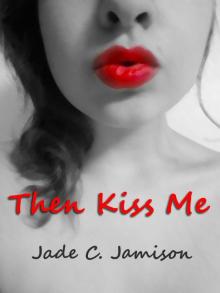 Then Kiss Me
Then Kiss Me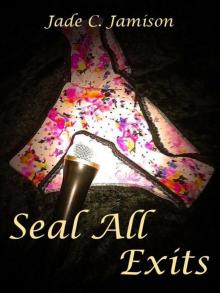 Seal All Exits (Tangled Web #3)
Seal All Exits (Tangled Web #3)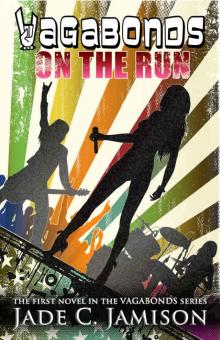 On the Run (Vagabonds #1)
On the Run (Vagabonds #1)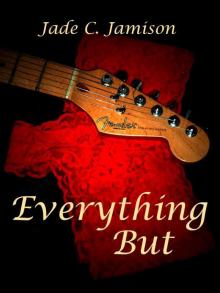 Everything But
Everything But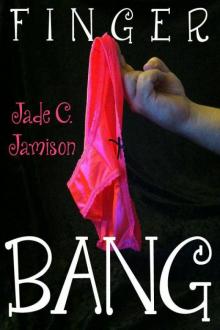 Finger Bang
Finger Bang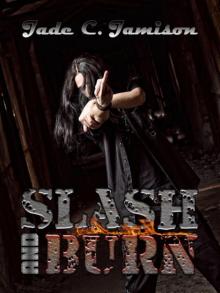 Slash and Burn
Slash and Burn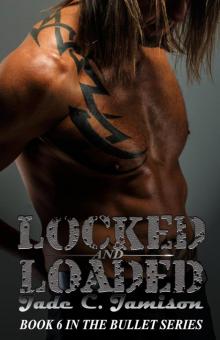 Locked and Loaded (Bullet, #6)
Locked and Loaded (Bullet, #6)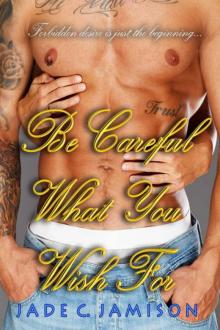 Be Careful What You Wish For
Be Careful What You Wish For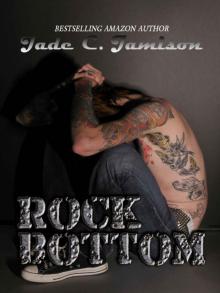 Rock Bottom (Bullet)
Rock Bottom (Bullet)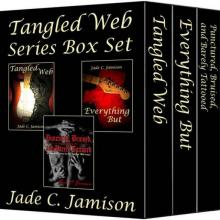 Tangled Web Series Box Set
Tangled Web Series Box Set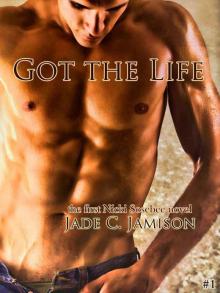 Got the Life (A Nicki Sosebee Novel)
Got the Life (A Nicki Sosebee Novel)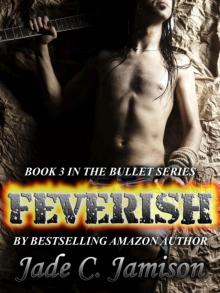 Feverish (Bullet #3)
Feverish (Bullet #3)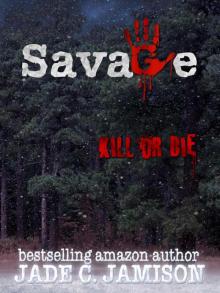 Savage
Savage